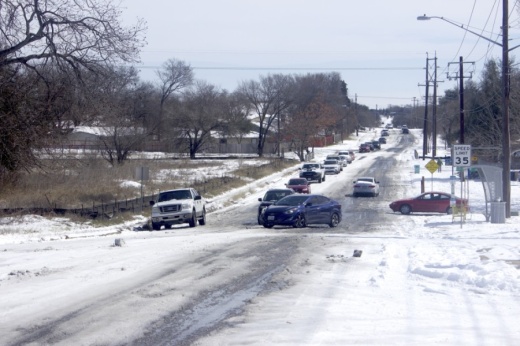Unfortunately, the dangerous condition of the roads is not likely to get any better for at least a few days. According to the National Weather Service, freezing rain and sleet will drop a tenth to a quarter of an inch of ice from the night of Feb. 16 into the morning of Feb. 17, which will make travel conditions even more dangerous.
Austin City Manager Spencer Cronk said crews from the city and other organizations have been working nonstop to get roads into the best shape possible, but the situation is going to get worse before it gets better.
"We won’t likely see this snow melt until the weekend. For the next several days, the road conditions are going to be very challenging," Cronk said.
If individuals do have to make emergency trips on the roads, officials are strongly pushing for them to do so during daylight hours, before temperatures drop and conditions worsen at night.
The work Austin Public Works crews have been performing since winter weather started affecting the area includes treating roads; clearing snow and ice around hospitals, fire stations, emergency medical service stations and the Austin-Bergstrom International Airport; and providing sanding escorts to Capital Metro vehicles supporting the city's emergency response.
Capital Metro shut down service Feb. 16 and will continue that suspension through the entire day Feb. 17. However, the public transportation agency is assisting the city by providing transportation for individuals who need a place to sleep to shelters and for those needing life-saving trips.
Capital Metro COO Dottie Watkins said she is not sure when the agency will resume service, but with conditions not improving—and likely getting worse—there was no way to do so Feb. 17.
President and CEO Randy Clarke said fares are not being collected until further notice, even when service does resume, in an effort to get travelers out of the cold quickly and minimize the economic impact of the crisis.
"Our city is just not set up, infrastructure-wise, for this once-in-70-year event," Clarke said.





